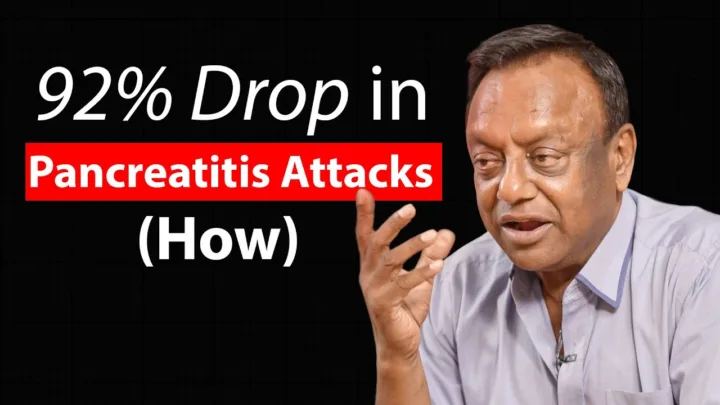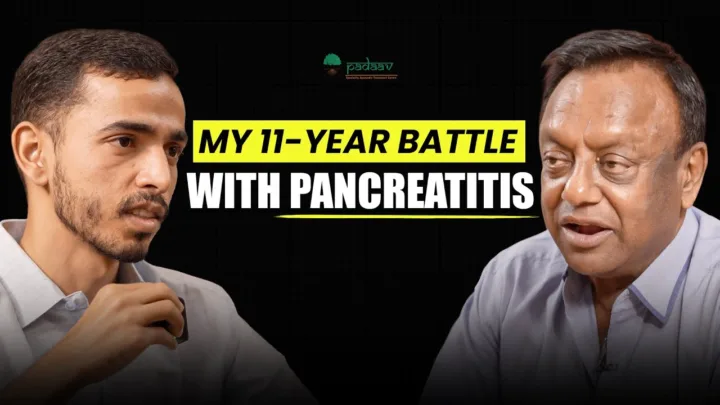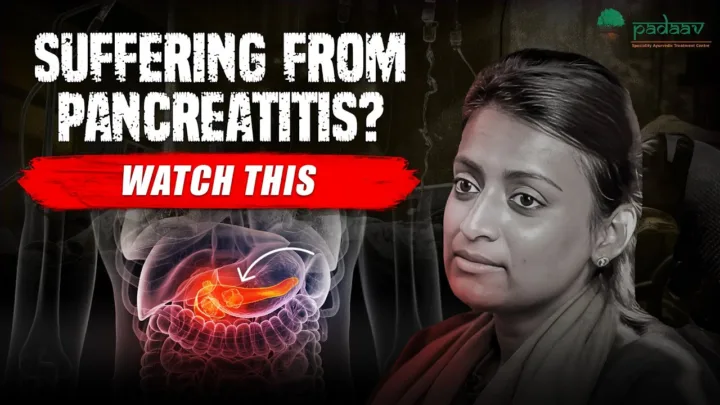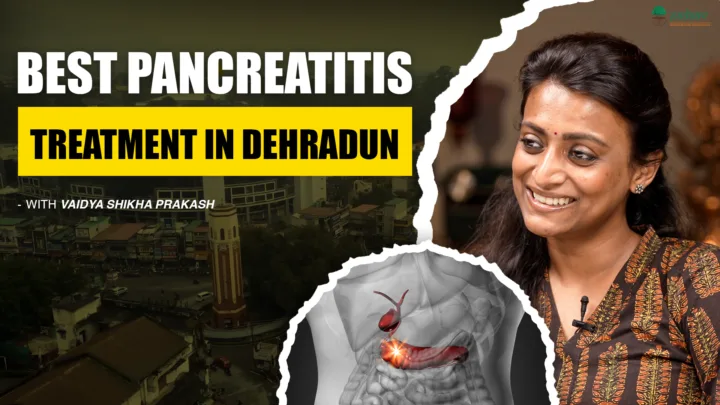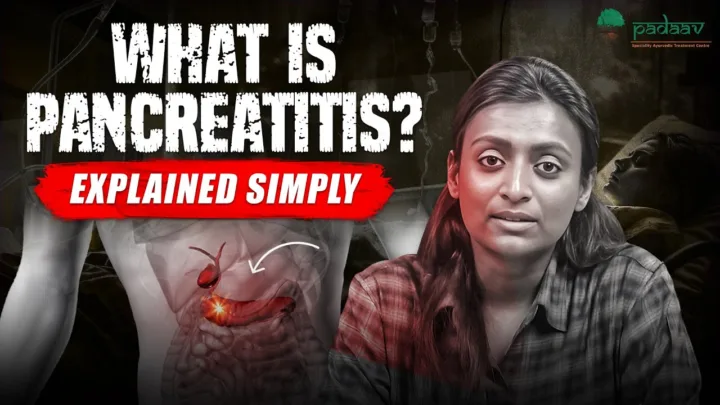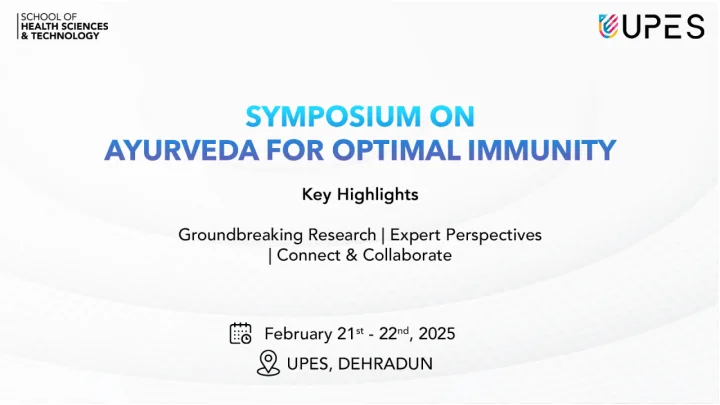Pancreatitis is a disease that takes a toll not just on the body, but also on the mind. In my 14 years of practice, I have witnessed countless cases that attest to this. I remember a seven-year-old boy from Himachal Pradesh whose eyes showed immense suffering. He looked at me and said directly, “Ma’am, my stomach hurts a lot, please do something.” I was surprised, not just by his age, but by his clear understanding of his diagnosis. I also recall the case of Anirban from Kolkata, who came to us with severe jaundice. He was so weak, yet after our treatment, he recovered completely and went on a long bike trip a dream he had.
These stories show that pancreatitis can affect anyone, regardless of age, and is not solely caused by alcohol or gallstones as is often believed. Today, we will discuss what acute pancreatitis is, why it occurs, and how Padaav Ayurveda approaches its treatment.
What is Acute Pancreatitis?
Acute pancreatitis is a sudden and severe inflammation of the pancreas. The pain is distinctly different from a regular stomach ache; it is intense and often starts on the left side of the abdomen, radiating to the back. Other symptoms include nausea, vomiting (sometimes with bile), rapid heartbeat, and a general feeling of weakness. In children, this is often mistaken for food poisoning or indigestion, as many medical texts incorrectly suggest that pancreatitis is not common in this age group.
The TIGARO Classification: Understanding the Causes
To understand the causes of pancreatitis, we use the TIGARO classification:
- T – Toxic and Metabolic: This includes alcohol consumption, smoking, obesity, a poor lifestyle, and certain medications.
- I – Idiopathic: This is a worrying trend, as a majority of our cases have no known cause. We hypothesize that this could be linked to a lack of balanced nutrition or micronutrient deficiencies.
- G – Genetic: Pancreatitis can be hereditary. If someone in your family has it, your chances of developing it are higher.
- A – Autoimmune: In this condition, the body’s immune system mistakenly attacks the pancreas.
- R – Recurrent: Once a person has an attack, they are more susceptible to having recurring attacks.
- O – Obstructive: This is caused by gallstones blocking the pancreatic duct.
We have recently observed sudden attacks of pancreatitis in patients aged 60-70 with no history of alcohol or smoking, which further supports the theory that lifestyle and dietary habits are now major contributing factors.
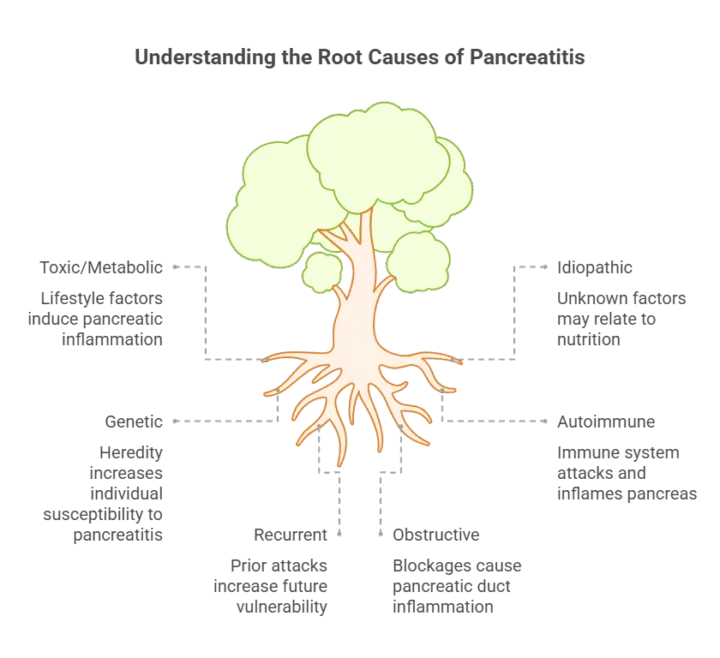
What Happens During an Attack?
During an acute pancreatitis attack, the pancreas becomes severely inflamed. The digestive enzymes, which are meant to break down food, begin to “self-digest” the pancreas itself, a process called autodigestion. This is what causes the excruciating pain. During this time, patients are not given food but are nourished through IV fluids, allowing the inflammation to subside. The severity of an attack can vary greatly, ranging from a minor episode that can be managed at home to a severe case requiring long-term hospitalization and antibiotics.
The Padaav Approach to Treatment
At Padaav, our treatment goes beyond just medicine. It is a comprehensive approach with three key stages:
1. Initial Consultation: First, we request a patient’s detailed medical history and reports. It’s important to note that 20-30% of acute pancreatitis cases are self-limiting and may not require treatment. We first assess if intervention is necessary in your specific case.
2. The 21-Day In-Residence Program: We ask patients to stay at our center for 21 days. In today’s fast-paced world, our daily routines are often disrupted, leading to a poor lifestyle and a compromised circadian rhythm. Our controlled environment helps correct this. Patients learn about their personalized diet, follow a strict routine, and receive constant monitoring, which helps them develop the habits needed for long-term health.
3. A Holistic Philosophy: We believe that medicine, diet, lifestyle, adequate sleep, hydration, and social interaction all work together to promote health. Our aim is not just to treat physical symptoms but to provide patients with the confidence and knowledge to manage their health for life.
Since 1997, Padaav has been a leader in the treatment of pancreatitis. We have seen that patients who complete our year-long protocol with compliance achieve significant and sustainable improvement. With the right information and a structured approach, pancreatitis can be effectively managed, allowing patients to live a normal, healthy life.

